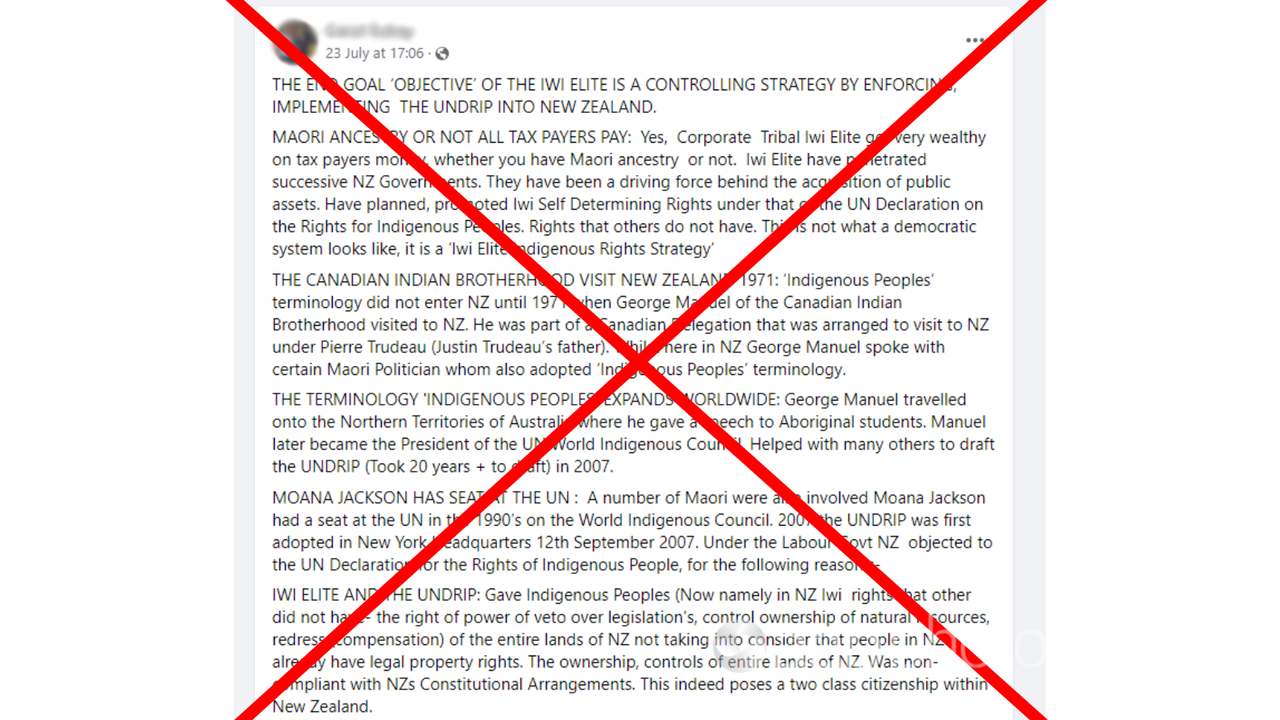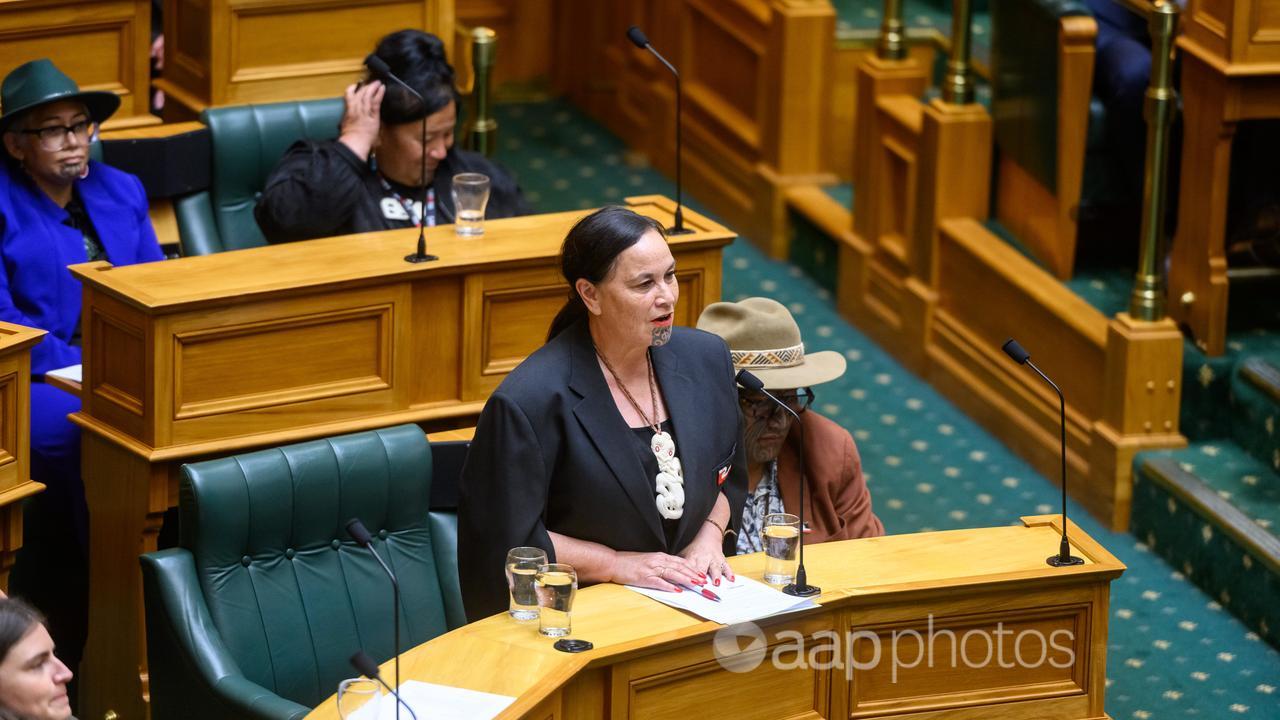AAP FACTCHECK – Maori groups in New Zealand have veto powers over legislation thanks to a United Nations (UN) declaration, according to social media posts.
This is false. Experts say the UN Declaration on the Rights of Indigenous Peoples (UNDRIP) has no independent status in NZ’s legal system and does not give Maori groups veto rights.
The claim comes after NZ’s government has thrown doubt on its commitment to the declaration.
The claim is embedded in a long Facebook post about the supposed objectives of the “iwi elite” via the implementation of UNDRIP in NZ.
Iwi roughly means a Maori “tribe”, “nation” or “group”.
In the sixth paragraph, the post claims the “iwi elite” and UNDRIP “Gave Indigenous Peoples (Now namely in NZ Iwi rights that other did not have — the right of power of veto over legislation’s (sic), control ownership of natural resources, redress (compensation) of the entire lands of NZ not taking into consider that people in NZ already have legal property rights”.

UNDRIP is a declaration adopted by the UN General Assembly in 2007, establishing a framework of minimum standards for the survival, dignity and well-being of the world’s indigenous peoples.
The NZ government announced its support of UNDRIP in 2010, but it’s not legally binding.
Experts on the status of UNDRIP in NZ law say Maori groups do not have the power of veto over legislation.
Professor Andrew Geddis, an election law and constitutional theory expert at the University of Otago, told AAP FactCheck the Constitution Act 1986 states that NZ parliament has the full power to make laws, and that no other group can declare those laws to be invalid.
He said the government may consult with indigenous groups, and a wide range of other groups throughout society, when considering laws.
But he added that “no iwi group can ‘veto’ the government’s decision to introduce a Bill into the House of Representatives, or Parliament’s decision to enact that Bill into law”.
Prof Geddis added that UNDRIP did not confer any veto rights on NZ’s indigenous people.
“The UNDRIP simply is a declaration by the UN General Assembly — it has no independent status in the legal system of Aotearoa New Zealand,” he said.
He added when NZ changed its position to support the UNDRIP in 2010, it specifically reaffirmed the legal and constitutional frameworks that underpin NZ’s legal system, noting that those existing frameworks define the bounds of the country’s engagement with the declaration.
“Nothing in this country’s support for the Declaration can be taken to challenge or change the existing constitutional arrangements of the country,” Prof Geddis added.

Professor Claire Charters, an indigenous rights scholar at the University of Auckland, agreed that Maori groups do not have veto power over any legislation passed by the government.
Prof Charters also said UNDRIP does not grant Maori groups property rights, land ownership or compensation, as claimed in the social media post.
“It recognises indigenous peoples’ rights to lands, to territories and resources but does not ‘grant’ these rights. It is for governments to uphold the rights and they hold the responsibility to do so,” she told AAP FactCheck.
Prof Geddis said UNDRIP could not create any new rights on the part of any Maori.
“It simply affirms existing rights that exist by virtue of the status of Maori as tangata whenua (indigenous peoples of Aotearoa New Zealand).”
The Verdict
False — The claim is inaccurate
AAP FactCheck is an accredited member of the International Fact-Checking Network. To keep up with our latest fact checks, follow us on Facebook, Twitter and Instagram.
All information, text and images included on the AAP Websites is for personal use only and may not be re-written, copied, re-sold or re-distributed, framed, linked, shared onto social media or otherwise used whether for compensation of any kind or not, unless you have the prior written permission of AAP. For more information, please refer to our standard terms and conditions.


















